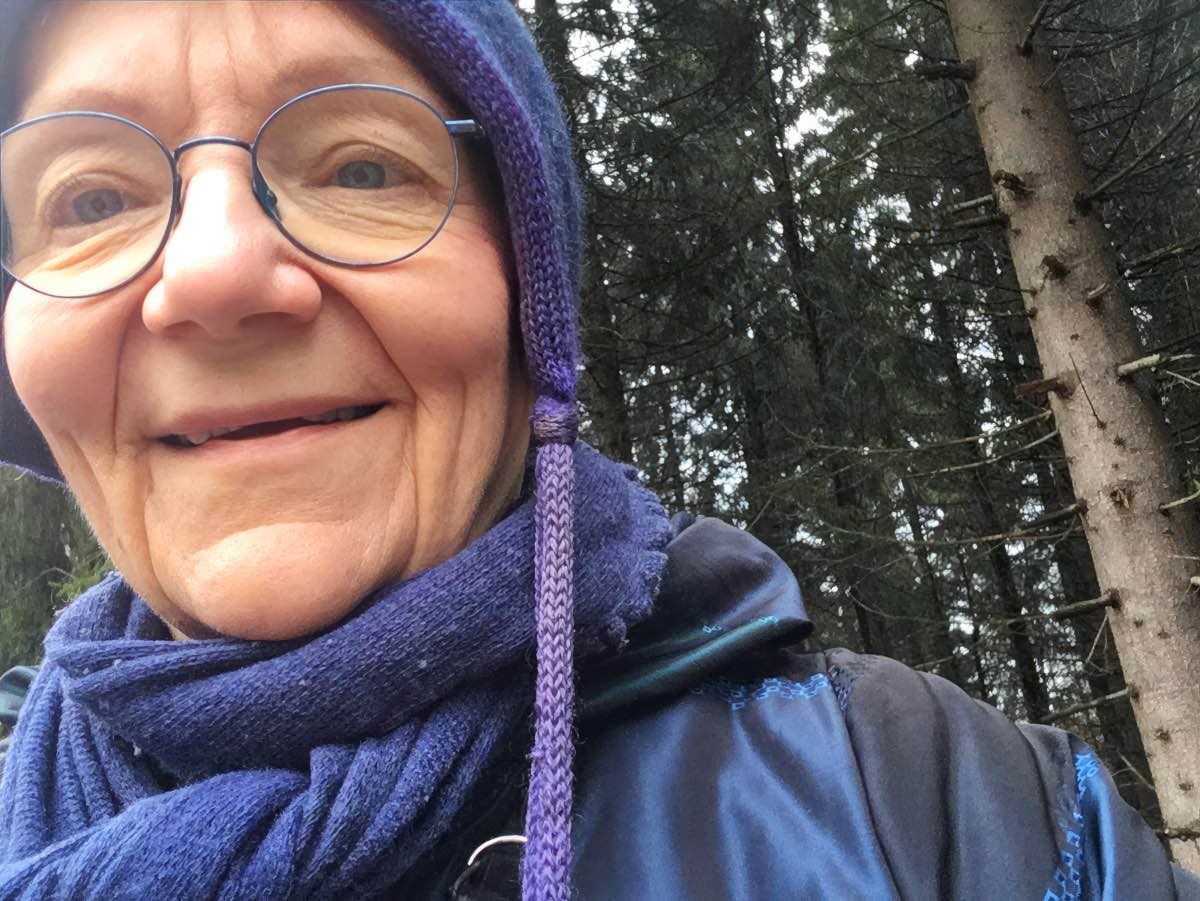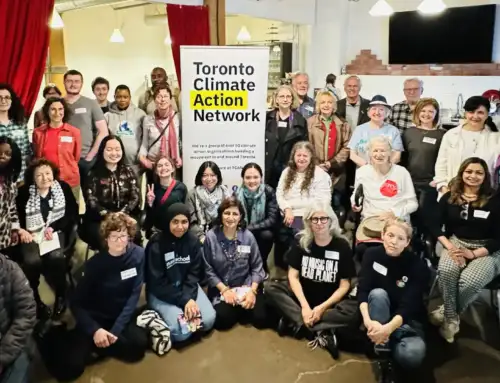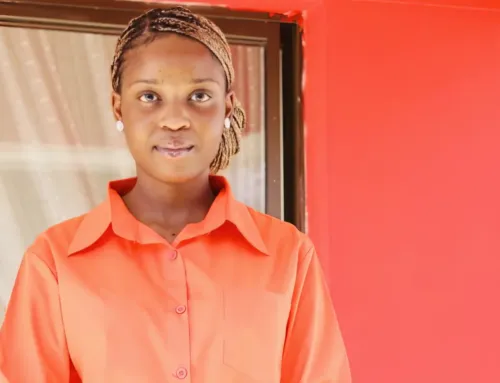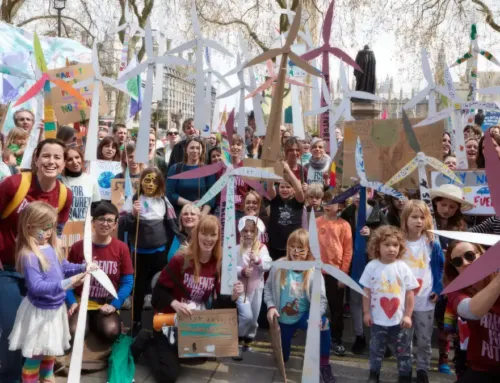STORIES
Helena Kääriäinen. Bringing “granny wisdom” to the climate movement in Finland
Helena Kääriäinen is a clinical geneticist and Research Professor at the Finnish Institute for Health and Welfare in Helsinki, Finland. Now in her early seventies, the grandmother of four is a founding member of Aktivistimummot (Activist Grannies), a network of grandmothers across Finland working to protect the earth for the thriving of all children. The Grannies – alongside some grandpas – organize tree planting campaigns, lobby politicians, collaborate with youth, and join protests such as the 2023 Nature March to demand bolder climate and forest protection. Though Finland is famed for being the world’s happiest country, climate anxiety is rising, especially among its youth. The Grannies aim to alleviate that anxiety by offering glimmers of hope. Helena reflects here on the unique role grandmothers play in climate advocacy and on the importance of snow in Finnish culture.
My dad was a meteorologist, so I knew long ago about climate change. I always tried to limit meat eating and live simply but I didn’t fear climate change or think about it daily. That changed suddenly when my grandchildren arrived. I tried to imagine what the world would be like for them in the future, and it felt somewhat desperate. I began to fly less, buy less new clothing, and talk about my choices with others. What had been just my normal lifestyle was now something I wanted to share with everyone. That was a change for me.
In 2019, some of us grandmothers in Helsinki began talking. We worried about climate change, biodiversity loss, and young people’s depression and anxiety. We all felt that we’ve been living in a wonderful moment in the world’s history, being born after wars when life became better and richer with more opportunities. Most of us were starting retirement and still had our knowledge, networks, and health, so we felt we could do a lot and that it was our time to give back. Twelve of us started Activist Grannies and now we have 6,660 Facebook followers and Grannies all over Finland.
In Finnish, mummot is a warm word for somebody who takes me berry picking or pulls me onto her lap and reads me fairy tales. The word “granny” is somehow sacred. Everyone has had a grandmother, and who can say bad things about a granny? Our granny wisdom differentiates us from other groups in the climate movement. Granny wisdom means we remember what life was like 40 or 50 years ago. It was a good life. We had nice clothes and respected them and didn’t buy new cheap ones every week. We know from experience that idiotic consumption doesn’t make anyone happy, but a simple life can be rewarding. From this wisdom, we created our two keywords: moderation and hope.
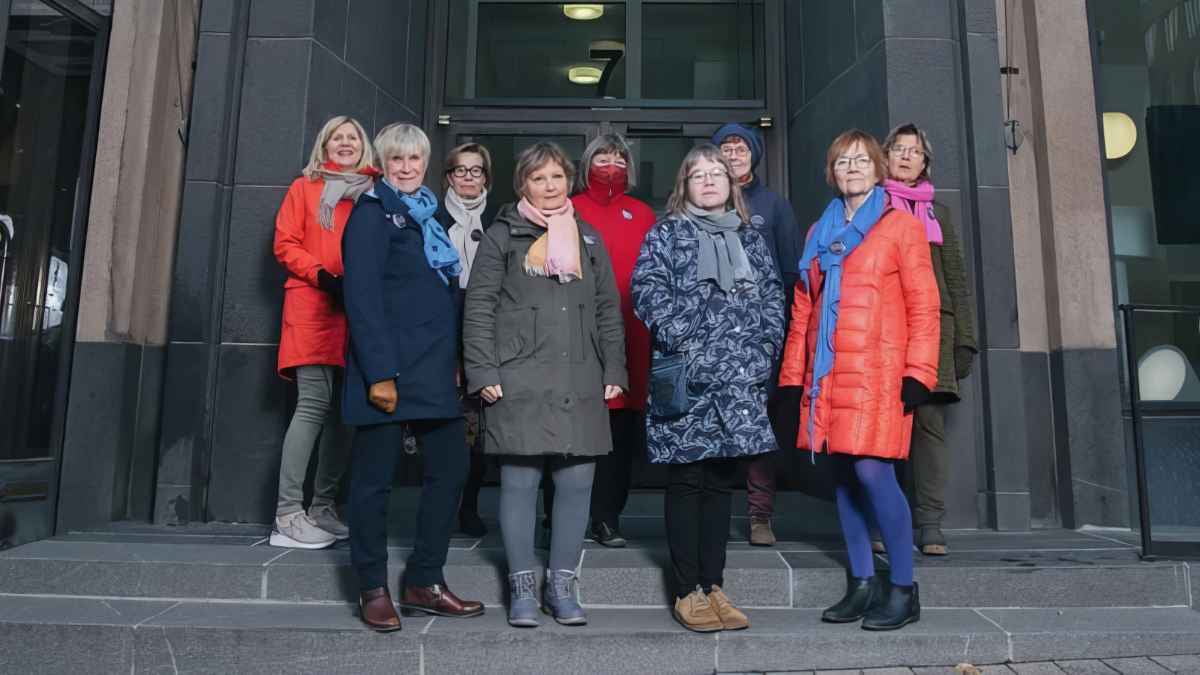
We aim to moderate consumption because people can do that themselves. One Christmas, we did a humorous visual campaign called “Best Enough Christmas” with Mrs. Claus as an Activist Granny offering advice on celebrating well with less consumption. We also have an ongoing campaign to buy and protect forests in Finland, and every year we give a prize to a climate-friendly business, group, or individual.
Our most recent campaign was Save the Snow. When I was a child, winters in South Finland lasted three or four months. Now they’re maybe two. Some people say it would be lovely to have a Mediterranean kind of winter, and we can go to North Finland if we want to ski. But cold and snow are important for Nordic culture. Snow gives light in the dark winter months and protects animals and plants that need cover in winter. We have a special word in Finnish for the dark time of year, kaamos, which translates to “polar night.” For several months in the North, the sun never even rises but at least there’s always snow. The Northern lights are important because otherwise it would be absolutely dark.
Here in South Finland, the sun goes down at 04:00 at the darkest time of year. If we have snow, that’s not a problem because it’s kind of light anyway. Now, though, we still have long darkness, but the snow cover doesn’t last anymore. We don’t have blue skies, freezing temperatures, and snow as often, and we have more gray skies and rain. It’s become harder for people, so hard that some are secretly depressed, unhealthy, and unable to work. For others it’s just boring and sad to wake up to another gray day with a little slippery snow here and there. When I was a child, it was cold and snowy, and you could walk easily. Now we need spikes on our shoes because it’s so slippery. One day it’s raining and the next, it’s snowing. That’s difficult.
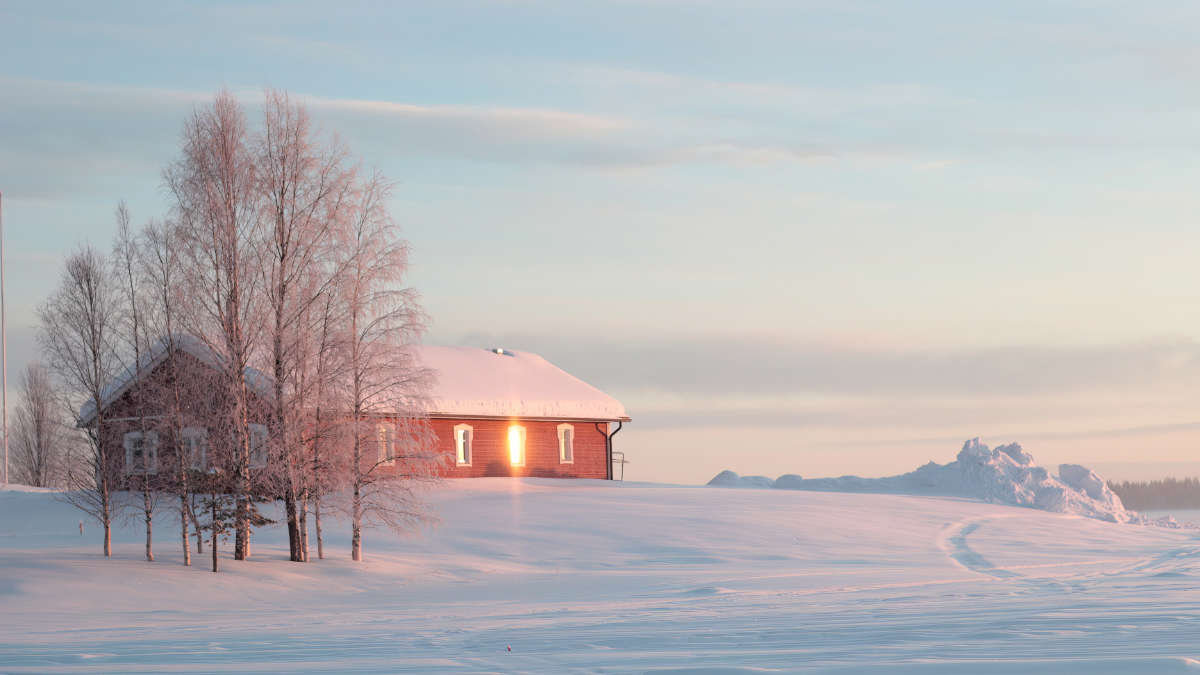
Snow is part of our culture. There are lots of Finnish books, paintings, and music about snow. Snow provides a culture of play that unites generations because we grandparents teach our grandchildren to ski, skate, and make snowmen and little snow houses. It’s sad to think that maybe in 20 years in South Finland there will only be a few snow days.
In Finland, roughly a quarter of young couples feel they don’t want children because of the climate. It’s a serious issue. Our role as elders is important because when all generations try to improve the climate situation, that might alleviate some of young people’s anxiety. In Finland, retired people have become the largest population group. We’re also the most active voters in parliamentary elections, so involving grandparents really adds power.
We collaborate with other age groups, but don’t do direct actions. We try to listen to the opposition. Our way is to convince people that life is good even if you don’t consume much. We model gratitude for nature, culture, and friendship.
I’m also part of Physicians for Climate, and we’re quite active before elections. We strongly believe that practically everything you do for the climate or to protect nature is beneficial for health. It would be impossible for any healthcare system to take care of all the problems caused if climate catastrophe really happens, because it would bring so much illness. My biggest worry is that things like Covid and war in Europe will fill our thoughts so much that we don’t have energy or resources to work towards climate mitigation. If climate change proceeds badly, I worry about wars over clean water, food, and the best places to live.
What gives me hope is that many young people are adopting more climate-friendly ways of living, and more and more people are understanding that fighting climate change doesn’t mean giving up a good life, just one of excessive consumption. The most important things remain, like culture, nature, and the love of family and friends.


